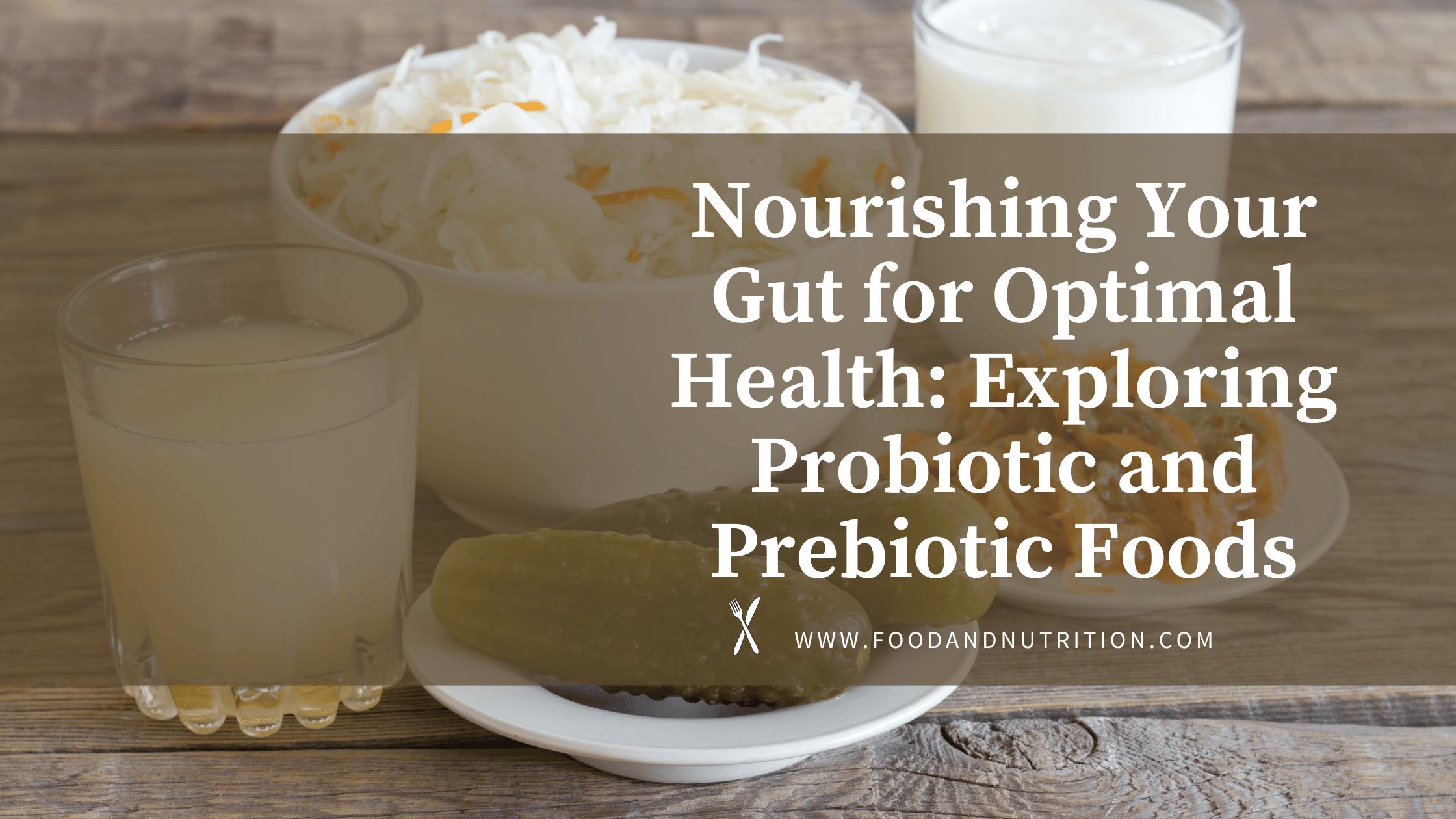Nurturing Your Gut with Prebiotic Foods: A Guide to Optimal Digestion

Have you heard of prebiotics? They are non-digestible fibers that feed the beneficial bacteria in your gut, helping them to flourish and provide numerous health benefits. By consuming prebiotic foods, you can help support a healthy gut and overall wellbeing. In this blog post, we’ll explore what prebiotics are and some of the best prebiotic foods that you can incorporate into your diet for a healthier gut.
What are prebiotics?
Prebiotics are types of dietary fiber that are not broken down in the digestive system. Instead, they reach the colon intact, where they serve as food for the good bacteria in our gut. By consuming prebiotic foods, we can help increase the number and diversity of beneficial bacteria in our gut, which can lead to improved digestion, immunity, and mental health.
Best prebiotic foods for a healthy gut:
- Artichokes: Artichokes are a good source of inulin, a prebiotic fiber that helps to nourish the good bacteria in your gut. They are also high in antioxidants and other nutrients.
- Dragon fruit: Dragon fruit is a tropical fruit that’s rich in prebiotic fiber, vitamins, and antioxidants. It’s a great addition to smoothies, salads, or as a snack.
- Garlic: Garlic contains fructooligosaccharides (FOS), a type of prebiotic fiber that helps to promote the growth of good bacteria in the gut. It’s also known for its immune-boosting properties and can be added to numerous savory dishes.
- Mushrooms: Mushrooms are an excellent source of prebiotic fiber, vitamins, and minerals. They are also low in calories and can be easily incorporated into soups, stir-fries, and omelets.
- Oats: Oats are a great source of beta-glucan, a type of prebiotic fiber that helps to promote the growth of good bacteria in the gut. They are also high in fiber, protein, and other nutrients and can be used in numerous breakfast and baking recipes.
- Soybeans: Soybeans are high in isoflavones, a type of prebiotic fiber that helps to promote the growth of good bacteria in the gut. They are also a good source of protein, vitamins, and minerals and can be used in numerous savory and sweet dishes.
Incorporating prebiotic foods into your diet is a simple way to support a healthy gut and overall wellbeing. By consuming foods such as artichokes, dragon fruit, garlic, mushrooms, oats, and soybeans, you can help feed the good bacteria in your gut, leading to improved digestion, immunity, and mental health. So, the next time you’re meal planning or grocery shopping, be sure to add some of these prebiotic foods to your list and take the first step towards a healthier gut.
- Discover the Nordic Diet: A Path to Health and Sustainability
- Ultimate Guide to Nutrition & Wellness Tips for Healthy Travel Adventures
- Personalized Menu Planning: Tailoring Nutrition to Individual Needs
- Discover the Best Healthy Cooking Oils: Benefits, Uses, and Expert Tips
- Ultimate Guide to Adaptogens: Benefits, Uses, and How to Incorporate Them
- The Ultimate Guide to Healthy Cooking Oils: Benefits, Uses, and Tips